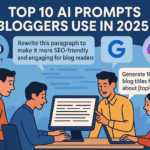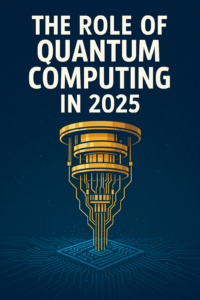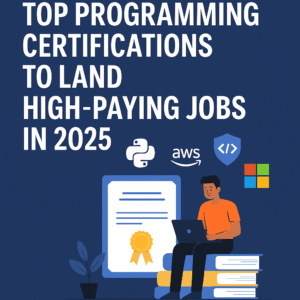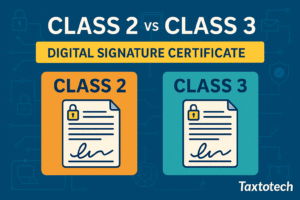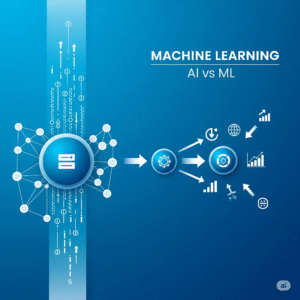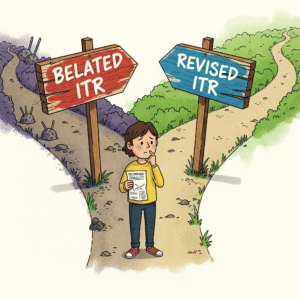If 2020 normalized remote work, then 2025 is optimizing it — with AI at the helm.
From AI scheduling assistants to smart productivity analytics, today’s remote work experience is hyper-personalized, efficient, and scalable. Let’s dive into how AI is reshaping remote work culture in 2025, and what tools, trends, and practices are shaping the new workplace.
🔍 Why AI is the Backbone of Remote Work 2.0
- 🤖 AI boosts productivity with real-time assistance
- ⏱️ Smart task automation cuts down admin burden
- 📈 Remote team analytics help track output transparently
- 🧠 AI supports mental well-being and focus optimization
💡 Taxtotech Insight: Over 62% of global remote workers now use at least one AI assistant daily.
🛠️ Top AI Tools Powering Remote Work in 2025
| AI Tool | Use Case | Who Uses It |
|---|---|---|
| Notion AI | Writing, meeting summaries | Product teams, bloggers |
| Motion AI | Auto-scheduling & task prioritization | Remote managers |
| Reclaim.ai | Smart calendar syncing | Freelancers, hybrid teams |
| Otter.ai | AI meeting notes + summaries | HR, sales, operations |
| Laxis AI | Real-time meeting coaching | Client-facing roles |
| Tandem AI | Virtual coworking w/ presence detection | Startups, design teams |
🧠 How AI Is Transforming the Workday
🔔 Smart Notifications
- Context-aware alerts that adapt to your focus cycles
- AI predicts when you’re likely to be distracted — and silences clutter
🧑💻 Focus Modes Powered by AI
- Tools like Serene AI adjust music, lighting, and tasks to enhance deep work
🗓️ Meeting Management
- GPT-powered bots send summaries
- Voice-tone analysis offers soft-skill tips after calls
📅 Dynamic Scheduling
- AI rearranges your calendar based on priorities and habits
📊 Remote Work Trends in 2025
| Trend | Description |
|---|---|
| AI Coworkers | GPT-4o-based agents join meetings, manage notes |
| Smart KPIs | Team productivity judged on output quality, not hours |
| Async Culture 2.0 | AI adjusts content for team members in different time zones |
| Virtual HQs | AI-powered avatars work in metaverse office environments |
| Wellness-first Policies | AI tracks mental health indicators & nudges rest |
🌐 Remote Jobs + AI = Future of Work
✨ Popular AI-Aided Roles in 2025
- AI content editor: Polishes drafts using GPT + SEO alignment
- Remote product manager: Uses dashboards that summarize team updates via AI
- Freelance developer: AI code review, bug detection, and deployment pipelines
- Customer support agent: Shares inbox with an AI that drafts replies in real time
📍 Hot Hiring Locations
- Tier 2–3 cities in India, Philippines, and South America
- Rising global hubs: Indore, Pune, Cebu, Medellín
🏢 Corporate Adoption of AI for Remote Work
- Microsoft Loop & Copilot used in over 85% of Fortune 100
- Google Workspace AI handles meetings, emails, docs
- Slack GPT boosts internal comms and automates reminders
- Zoom IQ auto-translates and adds sentiment analysis
🧘♀️ AI & Mental Health in Remote Work
- Replika for Work: Emotionally aware chatbot for stressed employees
- Mindwell AI: Suggests breaks, meditation based on stress signals
- Humu AI: Nudges leaders to support team morale
📈 Challenges of AI in Remote Culture
| Challenge | Solution |
|---|---|
| Privacy concerns | Zero-knowledge encryption, ethical guidelines |
| Over-dependence on AI | Training on human–AI collaboration best practices |
| Inequity in access | Cloud-based lightweight tools for rural/low-speed areas |
| Burnout from always-on culture | AI enforces “digital detox” hours |
🔮 What’s Next for AI in Remote Work?
- 🌍 Unified AI platforms for everything: voice, project, schedule, code
- 🧩 Personality-matched AI agents to suit each employee’s working style
- 📢 Voice-first work tools replacing traditional typing
- 🏙️ Hybrid VR/AI Workspaces with AI avatars for meetings & collaboration
📌 Taxtotech Forecast: By 2030, 40% of employees will collaborate more with AI than with human coworkers.
❓FAQs
Q: Can AI replace human workers in remote jobs?
👉 No. AI augments human performance, especially in creative and decision-heavy roles.
Q: Are AI tools for remote work expensive?
👉 Many AI platforms have freemium models or company-wide plans.
Q: How does AI help with work-life balance?
👉 It helps you prioritize, schedule breaks, and reduce distractions.
Q: Which industries benefit most from AI remote work tools?
👉 Tech, marketing, finance, consulting, and education.
🔚 Final Thoughts from Taxtotech
Remote work isn’t just a trend — it’s the default now. And with AI, it’s more powerful than ever.
Whether you’re a solo freelancer or leading a distributed team across continents, AI tools in 2025 help you work smarter, faster, and happier.
Keep following Taxtotech.com for more tech-driven workplace insights and innovations shaping the digital era.



